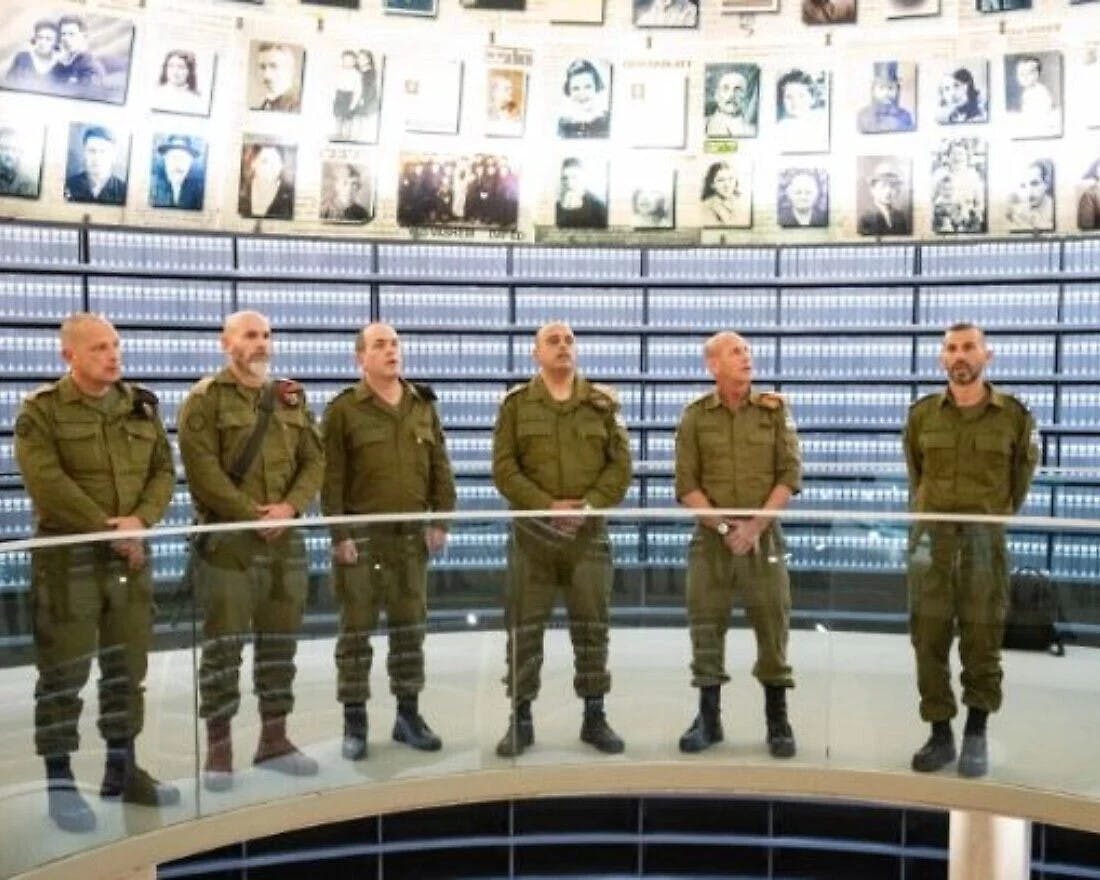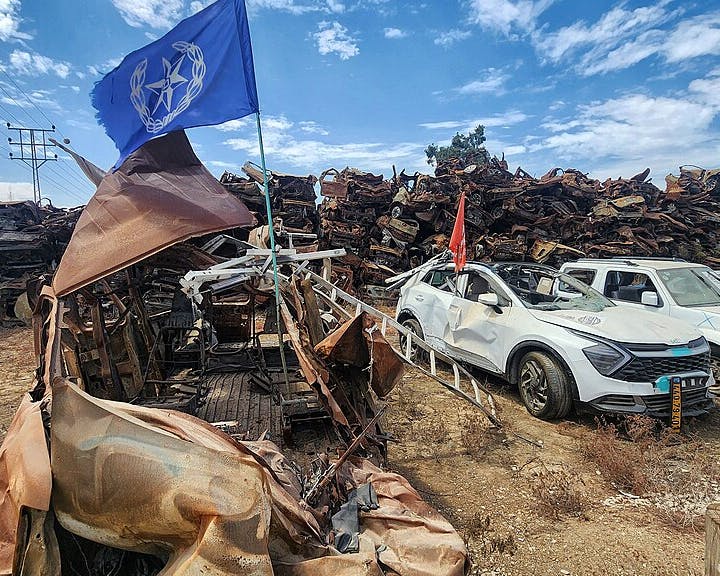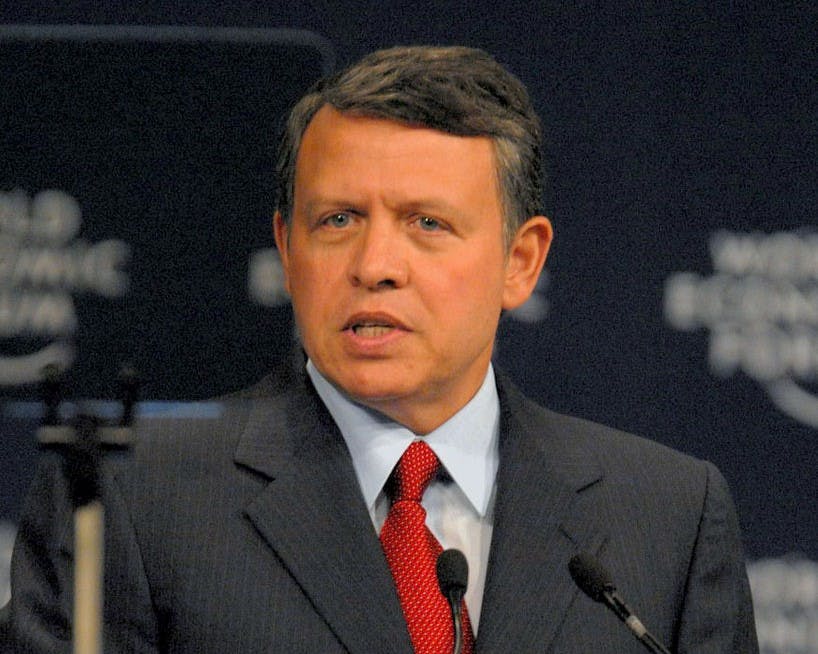Holocaust Denial in the Arab World Starts in Ramallah
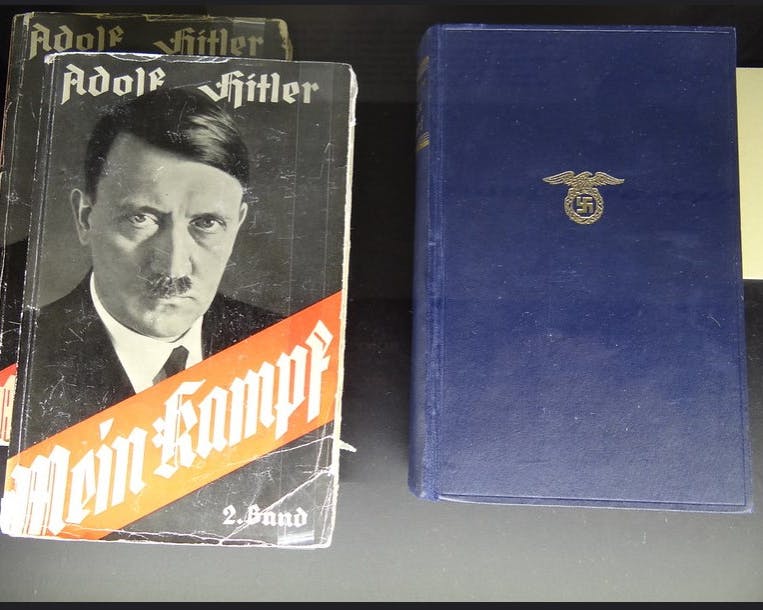
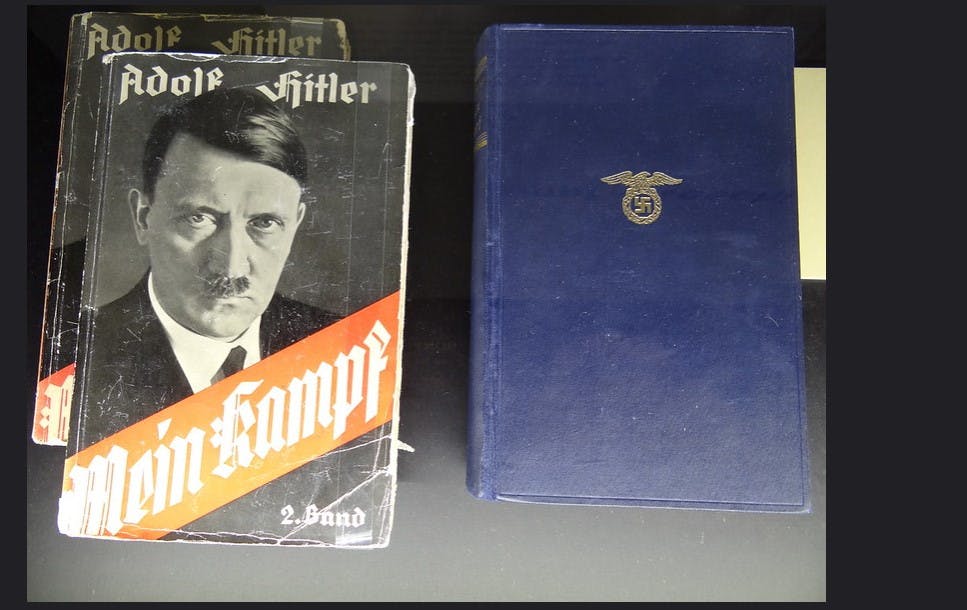
Wednesday, 23 April 2025 | “Holocaust denial has become a tool in the Arab world to bash Israel,” says Golan Barhum, a scholar of the Arab world and public diplomacy expert. “They use it in various ways to achieve political goals. Even those who don’t outright deny the Holocaust often ask, with supposed innocence: ‘But why should the Arabs pay the price for it?’”
According to Barhum, the most common phenomenon isn’t full denial but rather minimization—downplaying the number of victims and the scale of the Nazi killing machine.
“There’s skepticism about the figure of six million, and some claim the real number was closer to one million. Others deny the existence of camps or gas chambers and offer fabricated alternative explanations," he says, "Fast forward to recent times, and you’ll find that even a Hollywood film like "Schindler’s List" was banned in many Arab countries, including Egypt. There’s a clear trend of ignoring, downplaying and sometimes outright denial.”
Barhum notes that this same pattern—denial and minimization—reemerged following the October 7 Hamas massacre. “They claim certain things never happened. A Qatari commentator, during a live debate with me, insisted it was Israel that bombed the Nova festival site and harmed the revelers. Even Queen Rania of Jordan said she wasn’t sure the atrocities actually occurred. And all this in 2023, when we have videos, documentation and numerous testimonies. So it’s obviously even easier to deny events from World War II,” he says.
A Holocaust Denial Manifesto
One of the most prominent Holocaust deniers in the Arab world lives just a half-hour from Jerusalem and is well known to the Israeli public: Palestinian Authority [PA] President Mahmoud Abbas, better known as Abu Mazen. In a doctoral thesis he wrote decades ago, Abbas not only claimed the accepted numbers were fabricated and that fewer than a million Jews were murdered in the Holocaust, but also spun an elaborate conspiracy alleging that the Jewish community collaborated with the Nazis as part of a plan to achieve political goals and establish a Jewish state after the war.
Dr. Edy Cohen, who extensively studied Abbas’ dissertation, co-authored a book with Pierre Lurçat titled "The Holocaust in the Eyes of Mahmoud Abbas," detailing the arguments of the thesis and the falsehoods spread by the Palestinian leader.
“Abbas’ dissertation hasn’t been sufficiently investigated,” says Cohen. “It’s essentially the manifesto of Holocaust denial. This expansive document gained broad traction in the Arab world—it was even found in Saddam Hussein’s palaces. It’s been reprinted several times and continues to circulate among various segments of Arab society. Abbas originated the theory of a ‘hidden truth’ and alleged collaboration between David Ben-Gurion and the Nazis.”
Less than three years ago, Abbas again stirred controversy when he claimed Israel committed “50 massacres in 50 Palestinian villages—50 Holocausts.” He made the remarks during a press conference with German Chancellor Olaf Scholz. After global outrage erupted, Abbas walked back the statement, clarifying that “the Holocaust is the most heinous crime committed in modern history.”
How does the method work, based on your research?
“The core claim is that the Holocaust is a political tool Jews used to convince the world of the need for a Jewish state. According to this narrative, due to Jewish victimhood and exaggeration during the war, the world agreed to establish Israel. Following that, they argue, Jewish historians falsified the historical record. The bottom line of this conspiracy theory is that the Palestinians are the real victims of the Holocaust—they lost their land while Israel was founded thanks to it.”
So who are the “new Nazis”?
After Hamas’s October 7, 2023, terror attack on Israel, a battle erupted over narrative and perception. While Israel presented evidence of the atrocities, including testimonies and videos filmed by the terrorists themselves, Palestinians clung to counter-narratives. Initially portraying the attackers as freedom fighters, they later shifted back to framing themselves as the victim.
Some even claimed that Israelis were the “Nazis” and that Gaza is a “concentration camp.” Cohen explains this as a deliberate strategy to draw parallels between the Holocaust and Gaza. “They constantly try to equate Israel and the IDF with the Nazis, portraying themselves as starving victims trapped in a ‘ghetto.’ It’s a way to not only accuse us but also to tap into familiar Western imagery and garner sympathy,” he says.
IDF soldiers entering homes in Gaza reportedly found swastikas, Nazi flags and copies of Adolf Hitler’s Mein Kampf. Dr. Cohen says Hitler’s image has gained popularity in parts of the Arab world, and his racist ideology was translated into Arabic: “Admiration for Hitler is widespread and not necessarily tied directly to the Holocaust. To them, he’s a wise and strong leader.”
So on one hand they call Israelis ‘new Nazis,’ and on the other, they admire Hitler? How does that add up?
“They use the narrative to suit their needs. When it fits, you’re a Nazi; when it doesn’t, the Nazis were actually on the right side. Even after October 7, they played both roles—victims and brave fighters. It’s all about what’s politically and rhetorically useful at the moment.”
Barhum adds: “Our mistake is trying to analyze this logically, through Western eyes. For them, there’s no contradiction. Everything is fair game to delegitimize Israel—comparing it to Nazism, invoking Nazi crimes and denying the Holocaust, all at once. It’s all part of the propaganda.”
Signs of Change
Alongside denial and minimization, Barhum points to a more positive shift in recent years in several countries, particularly following the Abraham Accords. Just before the COVID-19 pandemic, a delegation of Gulf state sheikhs visited Auschwitz, and Holocaust education has since been introduced into school curricula in the United Arab Emirates and, to some extent, in Morocco.
“Things are starting to move slightly in some places,” says Barhum. “We should encourage that and support the continuation of the Abraham Accords and the voices open to dialogue.”
Iran’s Antisemitic Tradition
What about Israel’s most bitter enemy? According to Iran scholar and expert Beni Sabti, antisemitism and Holocaust denial have deep roots in the Islamic Republic, going back even before the 1979 revolution.
“The Iranian people have been deeply antisemitic for centuries, and after converting to Islam, it intensified,” he says. “Before the revolution, Iran sought modernization, but xenophobia and antisemitism were never properly addressed.”
Sabti recalls how, in his youth in Iran, Persian translations of "Mein Kampf" and "The Protocols of the Elders of Zion" were widely distributed in mosques and on the streets. “After the revolution, antisemitism increased dramatically. But since around 2000, with the rise of the internet, many Iranians became more exposed to Israel and Jewish culture. A significant number oppose the regime’s antisemitism because they’ve seen the damage it causes,” he says.
How common is Holocaust denial by the Iranian regime?
“They deny it, downplay the numbers, and even when Iranian diplomats visit Auschwitz, they leave and spread the opposite narrative, downplaying the importance of what happened. We emphasize the six million number, but in Iranian thought, that figure has no value—they don’t see individual lives as meaningful. Perhaps we should focus more on the Nazi extermination machinery and ideology because the numbers game won’t persuade them.”
Sabti adds that conspiracy theories are widespread in Iran, making it fertile ground for tales of “Jewish plots” and historical fabrications. These often don’t come directly from the regime but through societies and mosque networks. There’s even a neo-Nazi group in Iran with a website and ongoing activity.
How did October 7 play into Iran’s antisemitic messaging?
“The regime used October 7 to revive and intensify antisemitic discourse. There have been many sermons and activities at Iranian Islamic centers in Europe that focus on antisemitic themes. Police raids at centers in Berlin and Hamburg uncovered Khomeini’s books with quotes from Hitler. These are explicitly antisemitic materials being spread across Europe with Iranian funding and operatives.”
(This article was originally published by Ynetnews on April 23, 2025. See original article at this link.)
https://www.ynetnews.com/article/syh8ius1xl
Photo License: Flickr

